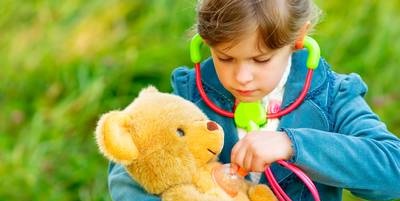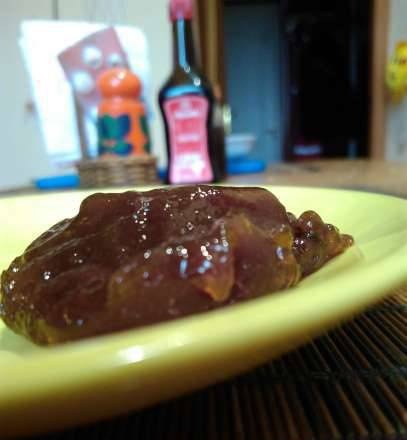|
 In the preschool age, a lot of things are laid that are to be shown and affirmed by a person in later life. Proper upbringing and development of a preschooler is a guarantee of a person's harmony and efficiency in study, work, personal and social life. In the preschool age, a lot of things are laid that are to be shown and affirmed by a person in later life. Proper upbringing and development of a preschooler is a guarantee of a person's harmony and efficiency in study, work, personal and social life.
All correctional work with children is divided into several stages:
1st stage - the formation of social activity and attention to a peer. The tasks of this stage are:
- awareness of the border between oneself and the outside world;
- a sense of their importance to others;
- formation of a common position of the child and peer in relation to the outside world;
- ensuring interest and emotional focus on a partner.
The main condition is to ensure the emotional unity of the group. A common emotional state satisfies the children's need for affiliation - belonging to a common social circle - which is a basic social need and is present in all children.
At this stage, games are conducted with the children aimed at achieving a general emotional state, consonance with the experiences of each member of the group, i.e. on the appearance of emotional syntony. When organizing such games, special attention is paid to overcoming alienation and protective barriers in relation to peers. Also at this time, thematic classes are held aimed at creating a favorable psychological climate in a group of children.
At the first stage of work, children do not yet show conscious activity, so the teacher himself organizes the collective focus of attention on each member of the group. At the same time, the selected child feels his significance for others and experiences positive emotions in response.
Thus, by the end of this stage, the child is aware of the boundaries between I and Not-I, differentiates himself and others, shows interest and activity in relation to peers, and an expectation of an emotional response is formed.
 II stage - awareness of oneself as a subject of interaction. The tasks of the stage are: II stage - awareness of oneself as a subject of interaction. The tasks of the stage are:
- formation of the ability to set goals;
- the formation of images of "I-real" and "I-potential" ("What can I be?");
- awareness of their experiences and attitudes towards a peer;
- comparing and identifying oneself with a peer.
In the process of joint object actions, events and states that are separated from each other are linked in time. The repetition of conjugated actions organizes the child's expectations and allows him to anticipate changes in actions in his sensations, and, therefore, to tune himself to the appropriate response.
It is very useful at this stage to conduct role-playing games in the "family", "kindergarten" with the aim of uniting children, showing sympathy, care, the ability to notice the emotional state of other people.
Awareness of the reasons for his own emotional state makes the child interested in exploring his inner world, his I. Observations show that the preschooler begins to want to be better. Actions on the play image help him learn to anticipate the real consequences of his actions and, on the basis of this, arbitrarily change his play behavior.
During this period, it is necessary to create conditions for the transfer of skills and abilities formed in the classroom into a real life situation. A prerequisite for work is the creation of children's trust and disposition towards adults and their peers, the desire to cooperate with them.
III stage - awareness of oneself as a subject of relationships.
Stage objectives:
- the formation of experience of empathy and sympathy;
- the formation of anticipation of behavior and emotional state of the partner;
- assimilation of the simplest social motives of behavior (in the form of the desire to do something useful for others);
- the formation of the internal position of the individual.
The mechanism of personal growth is spatio-temporal displacement. This means that the child emotionally anticipates the consequences of his behavior, changes his self-esteem in this regard, and experiences at the moment those emotions that would arise in him in the future (based on a similar experience in the past).
At this stage of the work, the children begin to acquire the experience of empathy, sympathy and assistance in specially organized conditions for this, in simulated situations of practical and playful activities of children.
The game situations associated with competition, which are simulated at this time, orient children towards “appropriating” the qualities of another, his merits, and not demonstrating themselves.
At this stage of work, the formation of adult self-awareness is based on the "internal position of the individual." It is formed only when the child learns to express and be aware of his own emotions and feelings, both negative and positive, to model his relationships with other people, to build mechanisms of psychological defense and comprehend the boundaries of his own capabilities, his ability to resist the forces of evil and destruction, to carry for it's a responsibility.
Thus, favorable conditions for the upbringing of humane feelings and attitudes in preschoolers are:
- emotional comfort for every child;
- formation of positive relationships between children;
- organization of joint activities;
- respect for the child's right to development individuality;
- a differentiated approach in the process of educating children of humane feelings.
Inna Ivolgina
|
 In the preschool age, a lot of things are laid that are to be shown and affirmed by a person in later life. Proper upbringing and development of a preschooler is a guarantee of a person's harmony and efficiency in study, work, personal and social life.
In the preschool age, a lot of things are laid that are to be shown and affirmed by a person in later life. Proper upbringing and development of a preschooler is a guarantee of a person's harmony and efficiency in study, work, personal and social life.




